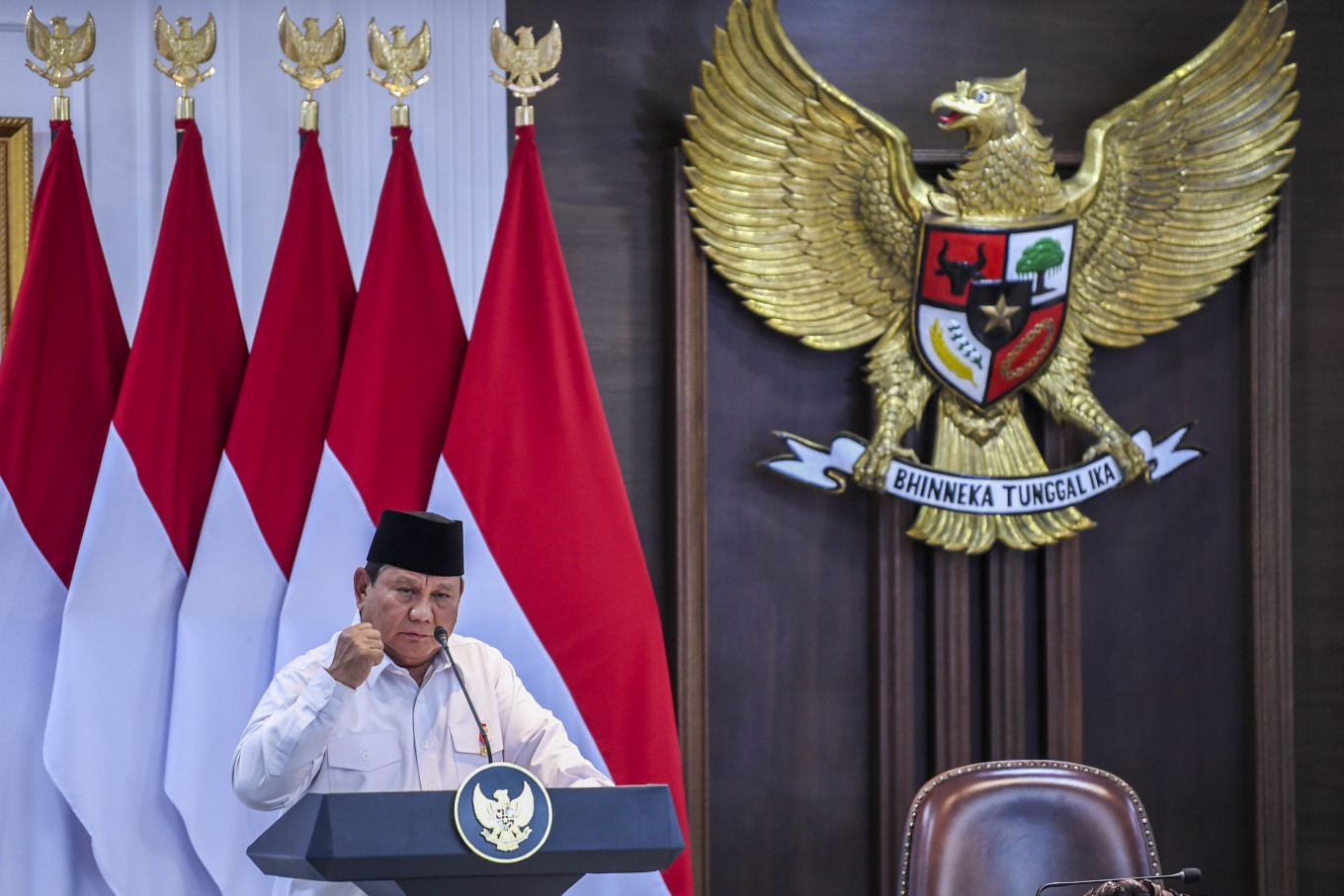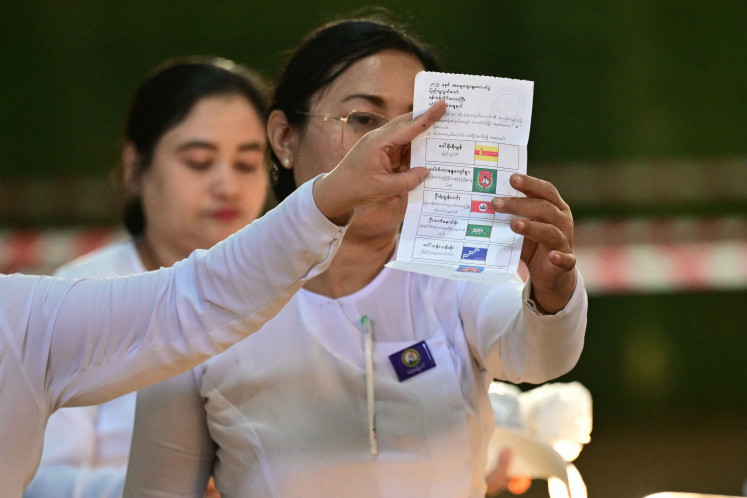Popular Reads
Top Results
Can't find what you're looking for?
View all search resultsPopular Reads
Top Results
Can't find what you're looking for?
View all search resultsDemonizing CSOs
President Prabowo's communication style, while a key part of his nationalist branding, reflects populism, which tends to divide society between "the people" and "others", who are often framed as a common enemy threatening the nation.
Change text size
Gift Premium Articles
to Anyone
L
ast year, just a month after winning the election, President Prabowo Subianto told a business forum about the country's democracy, which he said was "very tiring, very messy and costly." He might just be expressing his frustration, given his 15-year journey to the highest office, but still, seven months into his presidency, space for civil society continues to shrink.
The Prabowo administration's emphasis on national unity and stability, reflected in its large coalition and expanded Cabinet, appears to be a strategy for consolidating power. This approach seemingly resists dissent, public scrutiny and any questioning of government policies. Negative reactions to criticism have included Prabowo's use of the rude Javanese expression "ndhasmu", uttered against a Gerindra Party event, the police's arrest of a student for an "offending" meme and most recently, Prabowo's accusation that foreign entities fund civil society organizations to create disunity.
“With money, [foreign entities] fund CSOs to pit us against each other,” Prabowo said during the commemoration of Pancasila Day on June 2. “They claim to uphold democracy, human rights and press freedom, but those are merely their own versions [of these values].”
Such an attack on the credibility of CSOs is a common tactic in countries where democracy is backsliding or hijacked by oligarchs to obtain legitimacy. In some of those states, the rulers enact legislation to curtail the ability of independent civil society to operate, granting the governments sweeping powers to control their funding and activities. Even the "foreign agent" law has been enforced to stigmatize and marginalize CSOs.
It was not the first time that Prabowo displayed suspicion, if not dislike, of what Oliver, Marwell and Teixeira termed as “the critical mass”. Back in February, he warned the public of “foreign lackeys” in reference to CSOs and media outlets, which he said are being used by foreign actors to shape public opinion.
President Prabowo's communication style, while a key part of his nationalist branding, reflects populism, which tends to divide society between "the people" and "others", who are often framed as a common enemy threatening the nation.
In fact, since the 2014 elections, Prabowo has consistently adopted a populist communication style rooted in a crisis narrative and the creation of a common enemy. One of his key narratives is the “leakage of national wealth”, which implies that Indonesia's wealth and natural resources are flowing abroad due to the negligence or weakness of the domestic elite. In the logic of populism, this crisis is linked to two “enemies”, namely foreign parties accused of robbing Indonesia's wealth and a local elite perceived as weak or compromising.
Prabowo’s Pancasila Day speech has the potential to frame CSOs as “enemies” of the state, regardless of the fact that many of them, including foreign-funded ones, have long played crucial roles as public watchdogs and agents of transformation. They may criticize government programs that contradict the principles of deliberative democracy, but they also fill the gaps in areas where the government fails to perform, for instance, in poverty alleviation, environmental issues, education, social affairs and health.
Civil society groups, as well as students and the previously silent middle class, took part in demonstrations that marked the first few months of Prabowo’s presidency. They protested controversial policies, especially the revision of the Indonesian Military (TNI) Law, which allows active officers to hold more civilian posts. Students and civil society groups filed 10 judicial review motions with the Constitutional Court, with five of them turned down.
The noise they created in their activism might be seen as a direct challenge not only to Prabowo’s high approval rating, but also to his authority. Such fears, however, are baseless given the current government’s legitimacy as a result of a democratic election.
In a democracy, CSOs are partners, rather than rivals, to progress. Their role in providing critical feedback, the "checks and balances", should be valued as a mechanism to prevent corruption, protect human rights and create more effective, equitable policies.











